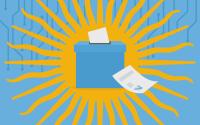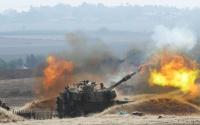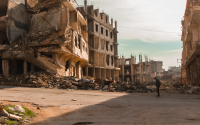Sunday May 19, 2002The aftermath of 11 September put not just the terrorist network al-Qaeda and its infrastructure on trial but also the values of the West. It has long been obvious that defeating al-Qaeda required not only military success. It also required an awareness of the fundamental human and democratic rights which distinguish open societies from their terrorist enemies. Sadly, the Bush administration has never fully grasped the second element of this equation. It has relied too often on an upsurge of patriotism to protect it from scrutiny or criticism. Last week the dam broke with news that on 10 September a report had been written for review by national security adviser Condoleezza Rice, outlining options to fight al-Qaeda - and that in July and August security officers had warned of threats to attack the US using hijacked planes. How much, America is now asking, did George Bush know? The US government is fighting back aggressively, trying to restore an atmosphere of non-criticism, non-debate and compliant acceptance. Yet this outbreak of democracy, with Senate Democratic majority leader Tom Daschle insisting that Bush turn over vital classified security briefing materials to the Senate, is long overdue. The US's strength is that it is an open society, and sustaining the domestic coalition against terrorism demands more inclusion and transparency of decision-making - rather than assuming that the president and his advisers are all-knowing and wise. The same is true in Britain. We remain in the dark about the exact circumstance of British citizens held in Guantanamo Bay. And we still have no accurate knowledge about what British troops are doing in Afghanistan. Britain, like the US, is an open society and there is a limit to how much we can and should be asked to take Government decision-making on trust
http://www.observer.co.uk/worldview/story/0,11581,718191,00.html






